15 Best Brain Exercises To Improve Memory In Seniors
Just like your muscles need movement, your brain needs challenge to stay sharp—especially as you age. While memory lapses and slower recall may feel like an inevitable part of getting older, science shows that targeted mental activity can keep your brain agile well into your senior years. Whether it’s remembering names, juggling tasks, or staying focused during conversations, consistent brain training can make a real difference. From puzzles and games to creative hobbies and mindful habits, there are countless ways to strengthen memory and improve overall cognitive function. That’s why we’ve expanded our list to include the 15 best brain exercises to improve memory in seniors—fun, accessible, and scientifically backed strategies to keep your mind engaged and resilient. Because staying mentally active isn’t just about remembering more—it’s about living more fully, with clarity, curiosity, and confidence.
1. Completing Logic Puzzles
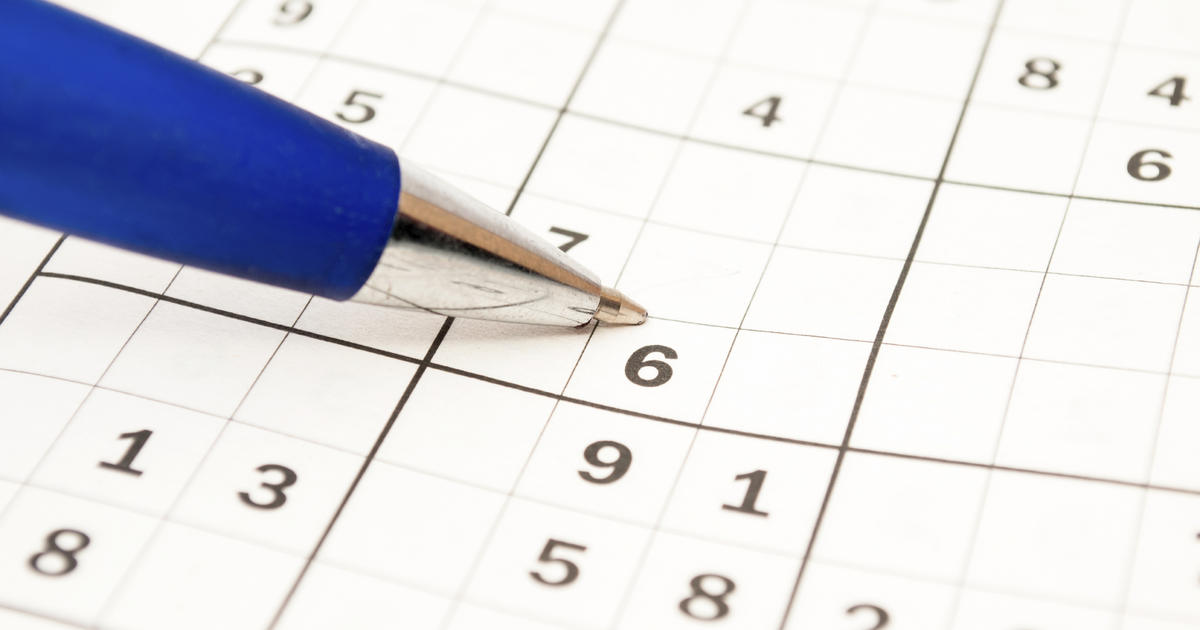
Completing logic puzzles can help seniors regain and maintain cognitive skills that require them to think unconventionally. Logic puzzles work on the left side of the brain, which is responsible for deciphering the logic and order of things. Logic puzzles are puzzles or problems that can be solved by using deductive reasoning skills and are often math-based or use numbers in some other fashion. They are great for the elderly because they aid in helping the individual engage in problem-solving from various angles. Logic puzzles aid not only in the resurgence of cognitive reasoning skills but also help in memory retention and maintenance.
2. Trying Word Puzzles
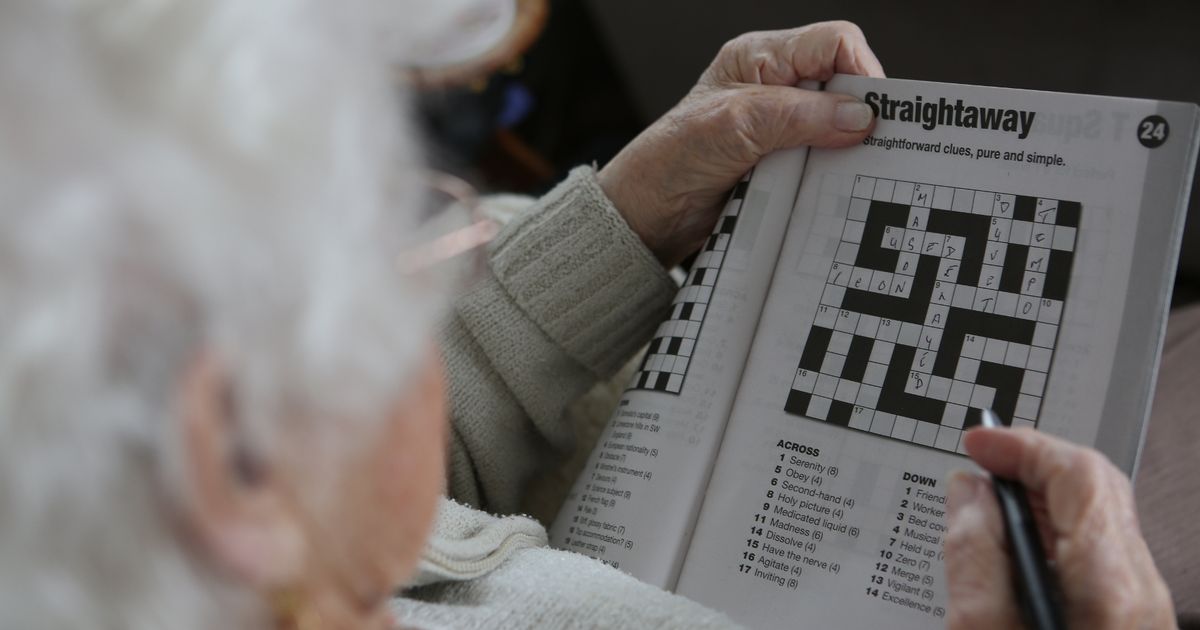
Studies indicate that seniors who engaged in the completion of word puzzles, such as crosswords or word searches and similar puzzles and games, experienced a delay in memory decline related to dementia. What's great about word puzzles is the fact they are widely available both online and in stores. There is also a lot to choose from, which helps keep individuals entertained and engaged. For many individuals, the enjoyment and benefit lie primarily within the challenging aspect of the puzzle, not the completion, which makes them a good long-term brain exercise to engage in.
3. Playing A Variety Of Card Games
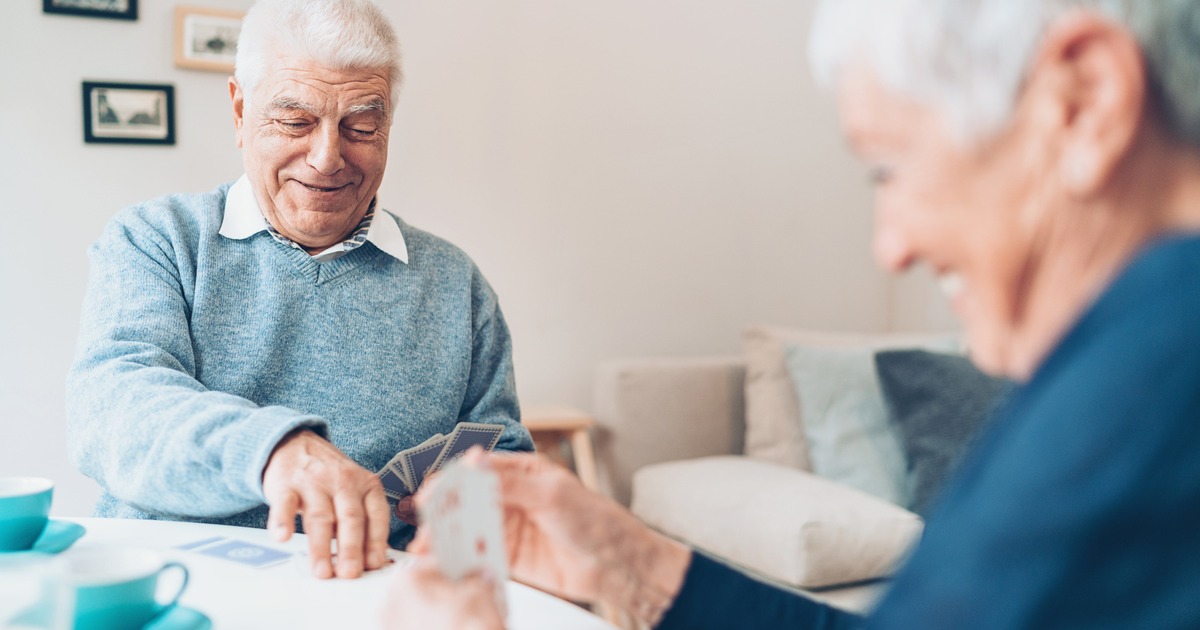
Playing a variety of card games is a great brain exercise for improving the memory of seniors. Studies indicate playing card games, such as bridge, can aid in boosting short term and long term memory. In addition to memory retention, card games are a great way to help seniors socialize with others, something that may be difficult after retirement. The best card games for improving memory are those that incorporate both memory and attentiveness. Games such as Go Fish can be a fun way to incorporate these cognitive functions for those whose memory or cognitive skills has declined significantly, while a rousing game of blackjack or spades can be helpful to those looking to maintain memory function.
4. Engaging In A Game Of Chess
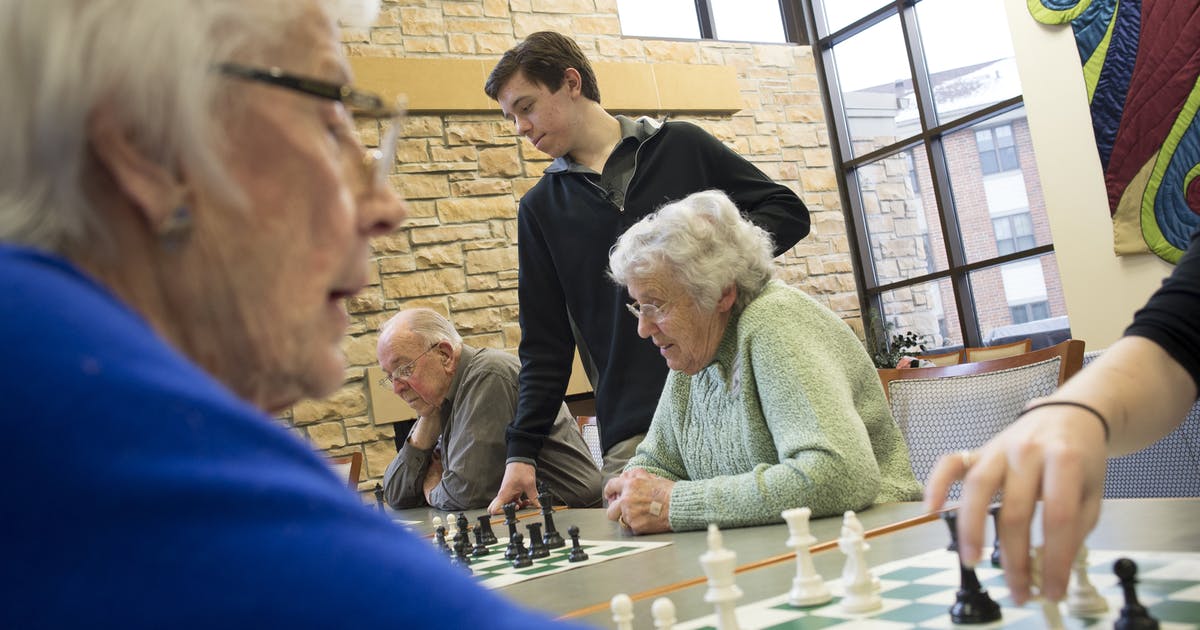
Engaging in a game of chess can help seniors improve their memory. Recent studies indicate chess is a great cognitive exercise for seniors as it is easy to learn and it incorporates socialization. Individuals over seventy-five years old who participate in what are known as 'brain sports' such as chess have been found to have fewer symptoms related to dementia as well as increased memory and cognitive function and an overall sense of wellbeing. Research also indicates playing chess activates different areas of the brain while playing, which keeps the brain healthy and alert and reduces atrophy.
5. Reading Lots Of Materials

Reading lots of materials also aids in memory improvement in seniors. Reading a variety of materials, ranging from academic material, novels, newspapers, and comics have been found to have a beneficial effect on the memory of seniors. The way an individual reads this material is important as well. Studies indicate reading aloud and from actual print materials rather than information printed on screens has the optimal effect on improving memory function. Research shows the act of both speaking the information and hearing it helps the brain process the information a little better and commit it to memory in such a way that it is easily accessible for the individual.
6. Learning a New Language

Learning a new language is one of the most powerful cognitive exercises for seniors. It strengthens both short-term and working memory while boosting attention and problem-solving skills. Studies from the Journal of Neurolinguistics show that bilingual individuals often experience delayed onset of dementia symptoms. Apps like Duolingo or community classes offer flexible learning options. Whether it's brushing up on high school French or picking up conversational Spanish, the process itself is what trains the brain—not fluency. The consistent challenge of vocabulary and grammar recall activates key memory centers.
7. Practicing Meditation and Mindfulness

Meditation may seem passive, but it is one of the most effective ways to train attention, improve memory, and reduce age-related cognitive decline. A 2010 study published in Consciousness and Cognition found that just two weeks of mindfulness meditation significantly improved working memory capacity. Guided meditations, breathing exercises, and body scans help reduce stress-related memory disruptions and sharpen focus. For seniors, starting with just 10 minutes a day can foster calm and clarity while supporting long-term brain health.
8. Learning a Musical Instrument
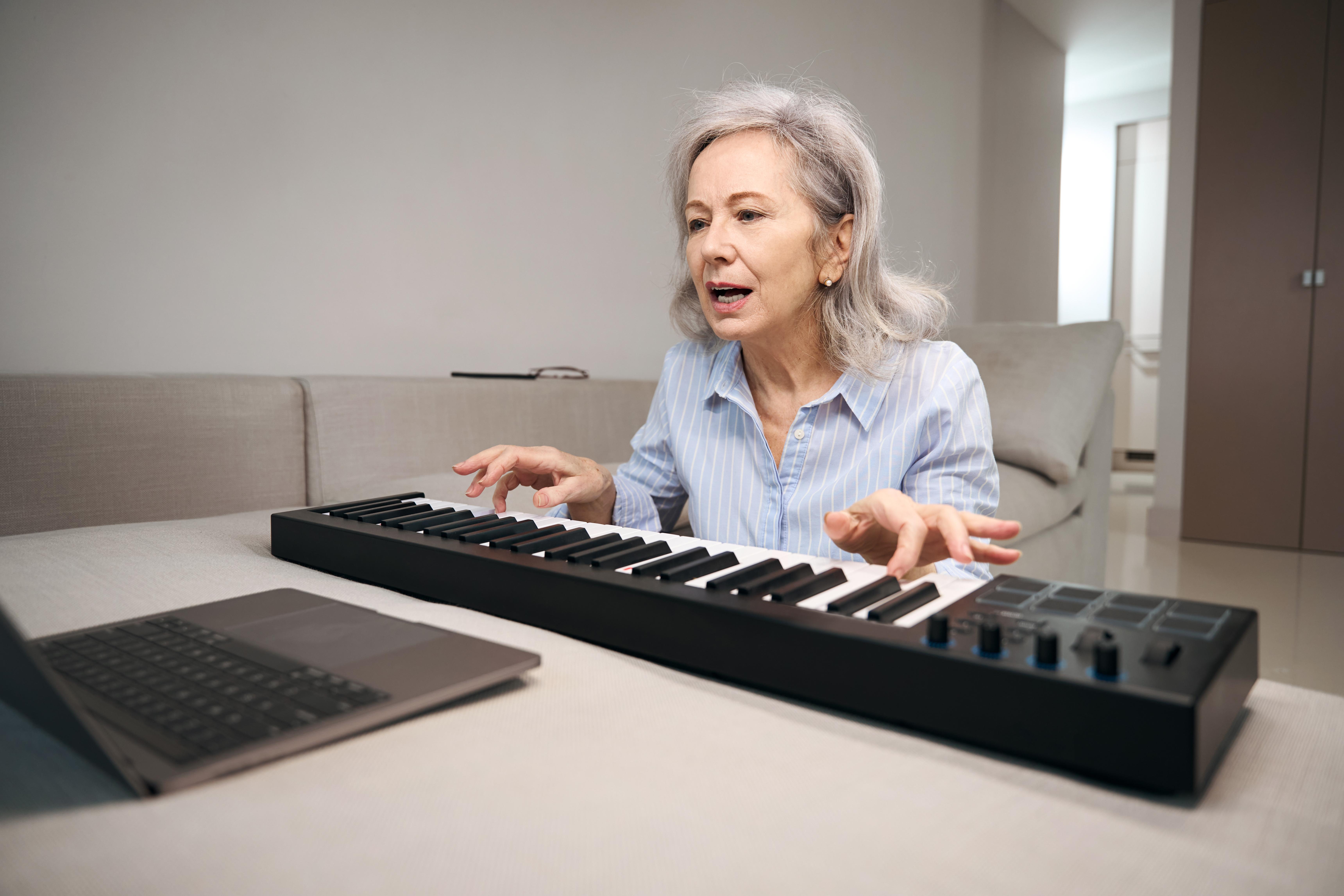
Whether it’s piano, guitar, or even the harmonica, learning to play an instrument challenges memory, coordination, and auditory processing all at once. Music engages multiple regions of the brain simultaneously. Studies from the Gerontologist suggest older adults who practice music exhibit higher verbal fluency and cognitive flexibility. Even learning to read music or repeating basic finger patterns can sharpen fine motor skills and working memory. Group classes or online tutorials make it accessible regardless of previous experience.
9. Creating Art or Drawing

Visual creativity exercises like drawing, painting, or sculpting help activate spatial memory, hand-eye coordination, and emotional regulation. Studies from Frontiers in Psychology show that engaging in creative art-making promotes neural connectivity and improves cognitive function in older adults. The act of translating ideas into visual form exercises problem-solving and planning centers of the brain. Art also reduces stress and boosts mood, contributing indirectly to memory and focus.
10. Gardening With Purpose
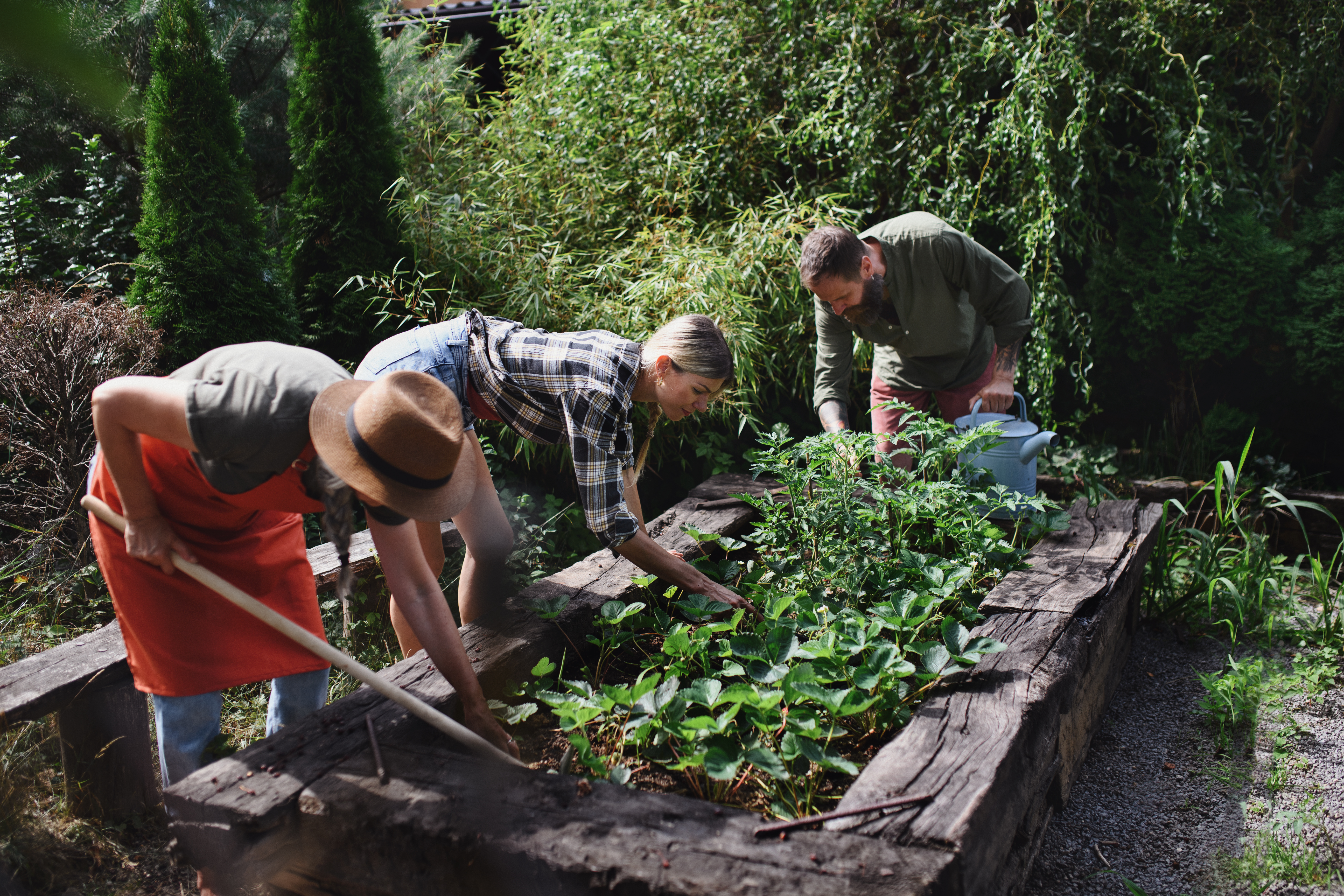
Gardening combines physical movement with routine planning, sensory stimulation, and goal-setting—making it an ideal cognitive exercise for seniors. Keeping track of planting schedules, soil conditions, and harvest windows stimulates memory and sequencing. Research from HortTechnology indicates gardening can improve attention span, reduce agitation, and enhance overall well-being in older adults. It’s also a low-impact way to connect with nature and enjoy structured activity without mental overwhelm.
11. Following Recipes While Cooking

Cooking from scratch—especially with a new recipe—is a brain workout in disguise. Measuring, sequencing steps, managing timing, and recalling ingredients engage both memory and executive function. A 2014 study in Neurocase showed that cooking and baking positively influence cognitive performance in older adults. For added benefits, trying culturally diverse recipes introduces new vocabulary and concepts. Seniors may also find joy and confidence in cooking for others, reinforcing both memory and emotional connection.
12. Taking Up Creative Writing
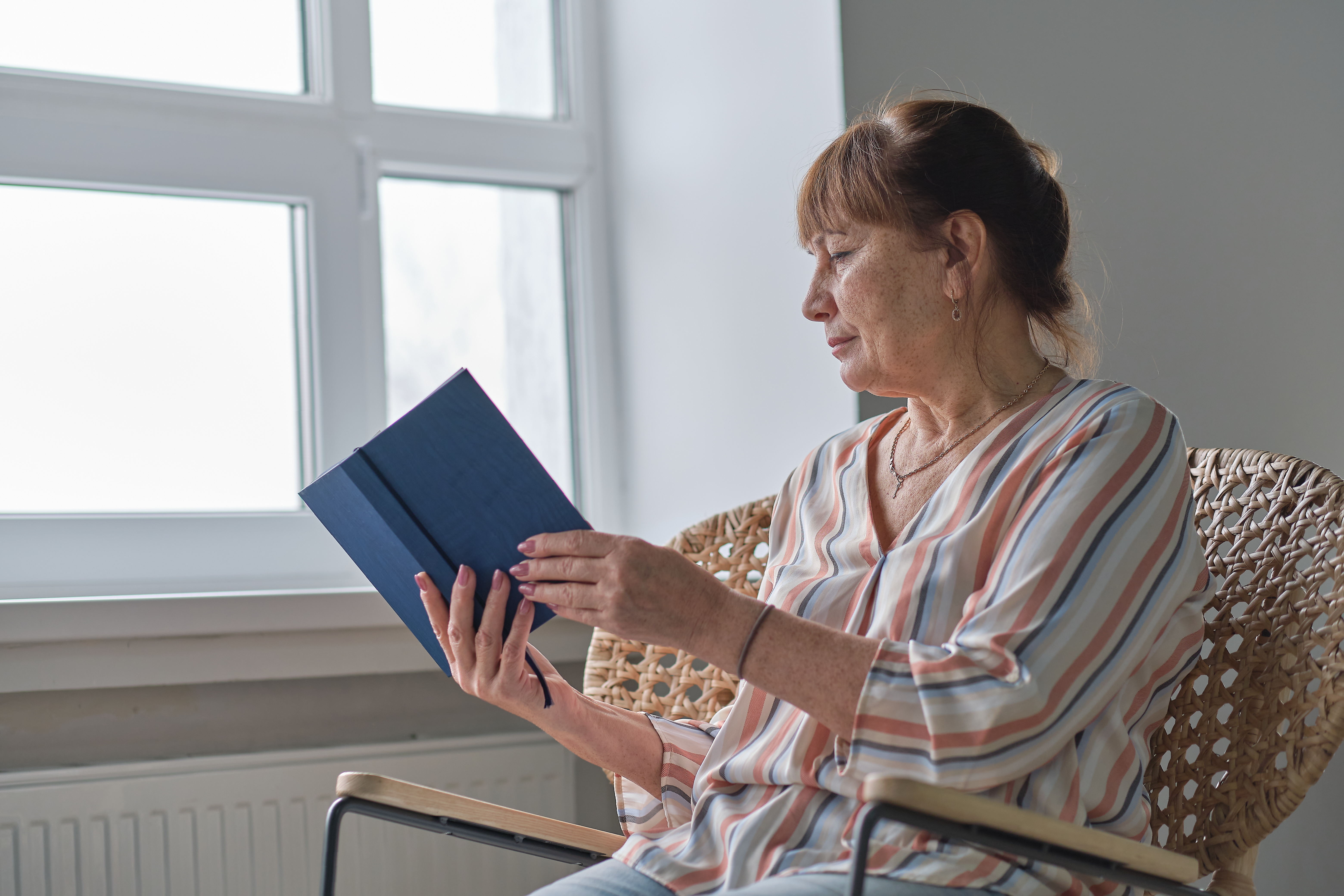
Writing exercises, such as journaling, storytelling, or poetry, stimulate memory, imagination, and language fluency. Seniors who write regularly tend to maintain sharper verbal recall and introspective awareness. According to Aging & Mental Health, expressive writing can also improve sleep, reduce stress, and support emotional memory. Whether it's recounting life stories or creating fictional worlds, writing keeps the brain engaged in higher-order thinking and reflective processing.
13. Joining a Book Club

Reading alone is helpful, but discussing what you’ve read takes it one step further. Book clubs encourage recall, synthesis, and verbal expression—key components of cognitive retention. Conversations with others reinforce comprehension and strengthen the social aspect of memory, which becomes especially important with age. A 2018 study from The Journals of Gerontology linked regular group discussions with improved working memory and slower decline in processing speed.
14. Solving Jigsaw Puzzles
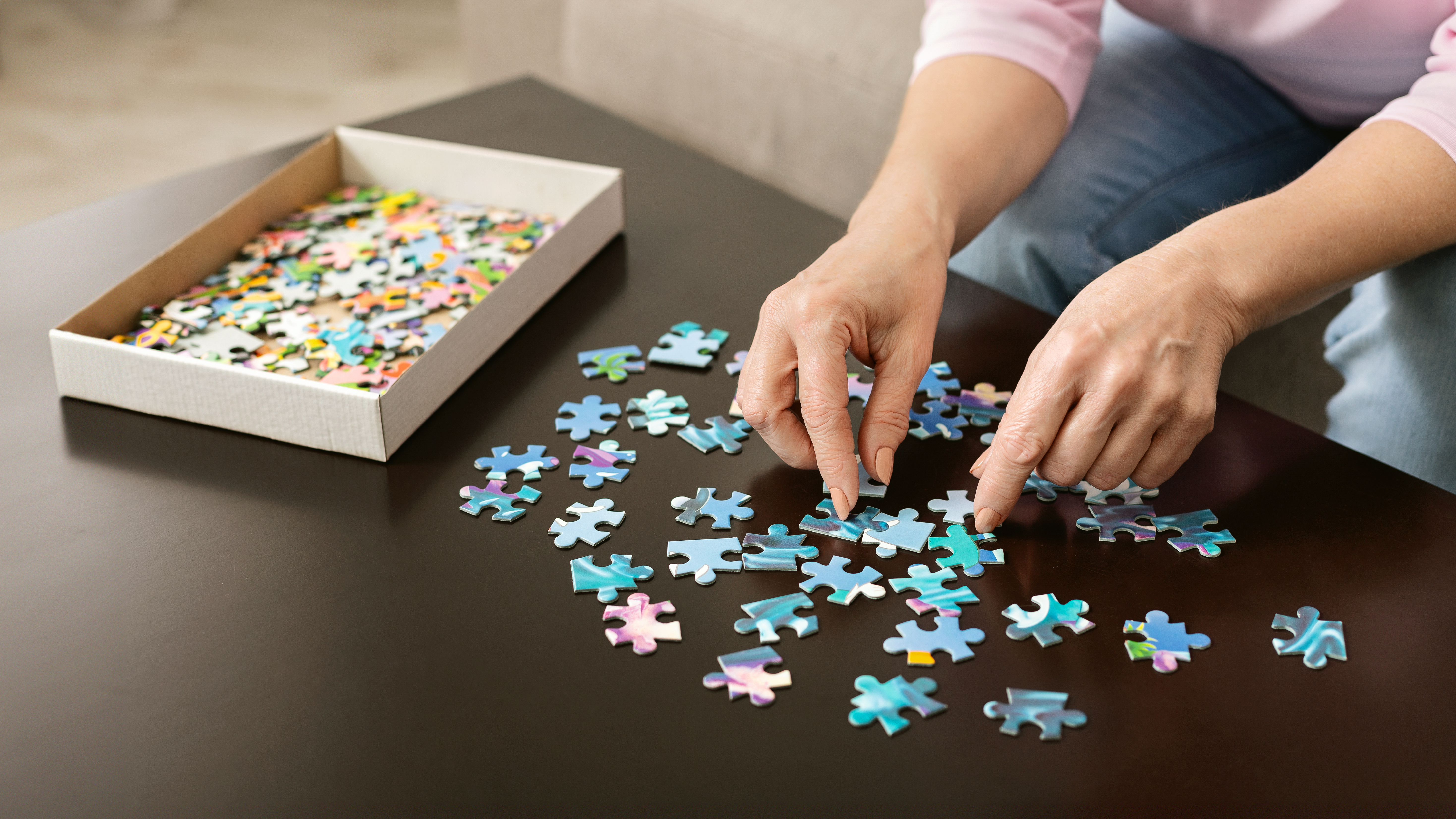
Jigsaw puzzles are a fun, low-pressure way to enhance visual-spatial reasoning and pattern recognition. Assembling a picture piece by piece improves short-term memory and encourages focused attention. Seniors who solve puzzles regularly may also benefit from lower stress levels and improved visual memory, according to research in Frontiers in Aging Neuroscience. The satisfying “click” of a correctly placed piece reinforces motivation and provides tangible reward for cognitive effort.
15. Dancing to Music
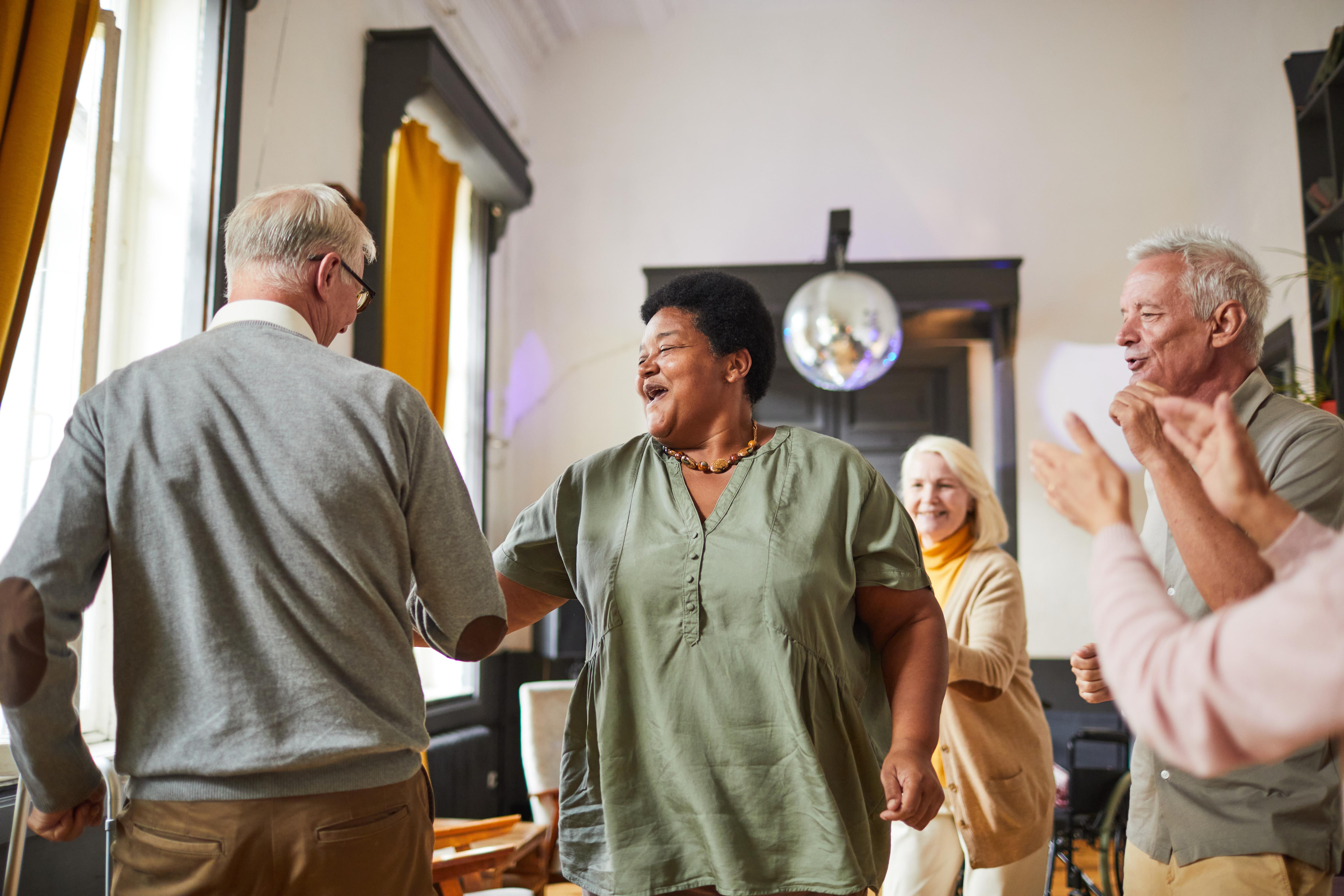
Dance, whether structured or freeform, connects movement, rhythm, memory, and emotional expression. Routines that involve memorized steps or timing—like line dancing or ballroom—challenge coordination and recall. A 2017 study in Frontiers in Human Neuroscience showed that dancing improved brain plasticity more effectively than other forms of physical activity in seniors. Plus, the joy of movement enhances mood—another factor critical to cognitive resilience.
Memory isn’t something you lose overnight—it’s something you can protect, nurture, and even strengthen with the right habits. The brain thrives on challenge, novelty, and connection, and every one of these 15 exercises is designed to spark just that. Whether you’re learning a new language, tending to your garden, or dancing in your living room, you’re doing far more than just passing time—you’re building new neural pathways, improving focus, and deepening emotional resilience. The beauty of brain exercises is that they don’t have to feel like work. In fact, the most effective routines are the ones you genuinely enjoy. So mix it up, stay curious, and make mental fitness part of your everyday life. Because when you keep your brain moving, your memories stay vivid, your thinking stays sharp—and every chapter that follows gets just a little richer, a little brighter, and a whole lot more your own.
